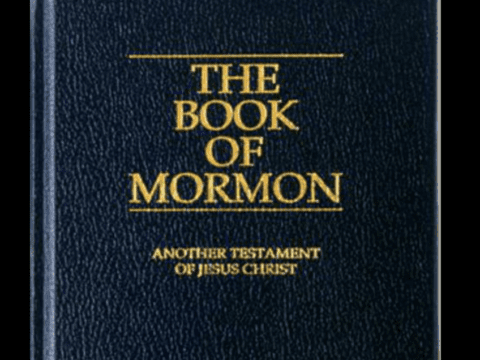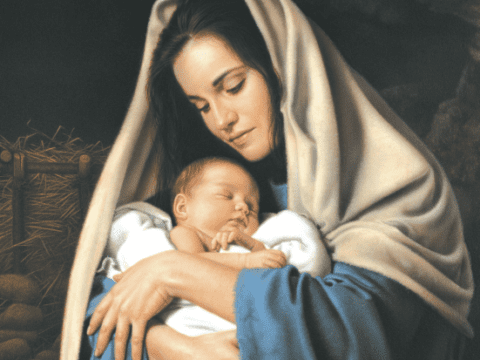On Sept. 18 and 19, 2020 in Provo, Utah, the Interpreter Foundation sponsored a virtual conference, “Tracing Ancient Threads in the Book of Moses.” Dr. Noel Reynolds and I collaborated on a paper that I presented, joined by Noel in the Q&A session. The presentation and our Q&A are in the Youtube video below. You can also read a draft of the paper on the Interpreter Foundation website, where you can also see the video and listen to the audio recording.
In our paper, we propose that the extensive textual relationships between the Book of Moses and the Book of Mormon is not easily explained by Joseph just relying on Book of Mormon language when he later dictated the Book of Moses, for many of the relationships suggest a direction of dependency from the Book of Moses to the Book of Mormon, as if something like the Book of Moses were on the brass plates used by Book of Mormon writers. In some cases, it is as if the Book of Moses text provides the backstory that Book of Mormon writers allude to, wherein knowledge of the relevant Book of Moses passage adds meaning to the allusions in the Book of Mormon text. Interestingly, writers most familiar with the brass plates like Nephi tend to provide the heaviest textual linkages to the Book of Moses. Further, the heavy relationship between the two texts is not evident when we compare the Book of Mormon with the Book of Abraham. The dozens of textual parallels not based on the KJV may provide an unexpected and fascinating insight into the ancient roots of both the Book of Moses and the Book of Mormon, via its ancient roots in the brass plates.
We recognize that this is a controversial position, but please consider the data presented in the paper and briefly summarized in the presentation before you dismiss the hypothesis.
An array of other speakers participated in the conference. The Interpreter Foundation is providing free access to the papers and to video recordings of most of the presentations. The presentations include:
- “Adam, Eve, the Book of Moses, and the Temple: The Story of Receiving Christ’s Atonement” by Elder Bruce C. Hafen (emeritus) and Sister Marie K. Hafen
- “Centralizing Scriptural Resources” by Ryan Dahle
- “Moses 1 and the Apocalypse of Abraham: Twin Sons of Different Mothers?” by Jeffrey M. Bradshaw, David J. Larsen, and Stephen T. Whitlock
- “‘Strong Like Unto Moses’: The Case for Ancient Roots in the Book of Moses Based on Book of Mormon Usage of Content Apparently from the Brass Plates,” by Noel Reynolds and Jeff Lindsay
- “‘The Word of My Power’: The Divine Word in the Book of Moses” by Matthew L. Bowen
- “The Priestly Interests of Moses the Levite” by John W. Welch and Jackson Abhau
- “Mortality Reconsidered: The Book of Moses as a Pre–Augustinian Text” by Terryl L. Givens
- “‘This Thing Is a Similitude’: A Typological Approach to Moses 5:1–15 and Ancient Apocryphal Literature” by David Calabro
- “‘Enoch Walked with God, and He Was Not’: Where Did Enoch Go After Genesis?” by Jared Ludlow












I've always been struck by the explicitness with which the LDS Church retrojects Christianity into ancient Israelite scripture and history. Mainstream Christianity engages in such retrojection in a circumspect way, via typology (e.g., when it interprets Adam as a type of Christ), via strained or just plain mistaken readings (e.g., when it misreads Isaiah 7:14 as prophesying a "virgin" rather than a "young woman" giving birth), etc.
But the Mormon scriptures just lay it out there, telling us explicitly that early 19th-century Christian/Protestant/Mormon theology has been revealed repeatedly to humankind since the very beginning, thousands of years before Jesus walked the earth. Rather awkwardly, these revelations did not appear in any known pre-NT texts, so Joseph Smith, with an audacity one cannot help but admire, simply created the needed scriptures himself, and his followers, with a not-so-admirable willingness to believe, accepted his claims that they are ancient.
Perhaps the best example of such retrojection is Moses 6:52:
And he [God] also said unto him [Adam]: If thou wilt turn unto me, and hearken unto my voice, and believe, and repent of all thy transgressions, and be baptized, even in water, in the name of mine Only Begotten Son, who is full of grace and truth, which is Jesus Christ, the only name which shall be given under heaven, whereby salvation shall come unto the children of men, ye shall receive the gift of the Holy Ghost, asking all things in his name, and whatsoever ye shall ask, it shall be given you.
Smith would have us believe that God revealed this crucial information to the Israelite leader Moses, and that then, who knows how, it disappeared from the ancient Israelite archive. The Israelites possessed the most crucial knowledge there is, the essential key to salvation, and they lost it. How careless! As a Jew, I find this imputation of cosmic carelessness vaguely insulting (though mostly amusing) — an act of cultural appropriation almost as disrespectful as the wholesale replacement of real Native American origins with Church mythology.
Re-reading the Book of Moses this morning, I was also struck by its narrative complexity. If I'm following the entire chain correctly, in Moses 6:52, Joseph Smith is telling us readers that God told Smith that some unknown narrator is telling us that God told Moses that Enoch told the people that God told Enoch that God told Adam that Adam should be a believing and practicing Christian.
What should we make of this complexity? I'm not sure.
— OK
It is like a Matryoshka doll. A mask, no top of a mask, on top of yet another mask. For a simpleton farmer it was genius. A sort of simulacra turning simple assertions into a complex flowery images. Does being a natural born artist make someone a prophet?
I like that you admit there is a more plausible explanation for your findings, but continue to argue for the less likely explanation. Another example of seeing what you want to see in the text and ignoring what doesn’t bolster your own theory.
“In exploring intertextuality between two revealed texts, there is certainly the
possibility that some parallels may simply reflect Joseph’s preference for
wording in describing common themes and concepts. Indeed, it is possible that
some of the parallels discussed below, especially when dealing with relatively
common concepts, may be a reflection of Joseph’s choice in wording, particularly
if the method of receiving revelation about a text involved using his own words
to express revealed impressions or ideas, as has often been proposed. “
And yet a Mushite priestly line is no longer discussed, and somehow this important order lost in time but evidences of a Mushite line have been hypothesized.
Here is an LDS based article discussing the Mushite line:
https://journal.interpreterfoundation.org/lehi-joseph-and-the-kingdom-of-israel/
If it can happen to a priestly line, then it can happen to other theologically important ideas.
Steve
Excited about Russ' big special message today? Think god's own Living Prophet is going to provide the wisdom to dealt with global pandemic and political temper tantrums that are having a destabilizing effect on Western democracies?
Anonymous @9:34, yep, looks like that's might be what his message could do. Getting people to turn away from strife and stir up waves of recognition of gratitude could lead people to be grateful for freedom, life, each other, etc., and help offset the rage and tantrums that threaten so much. Join with us and let's see what we can do.
FWIW, I really enjoyed the paper and the presentation.
Thanks, Mark! Glad you watched it.
Thanks, Mark!